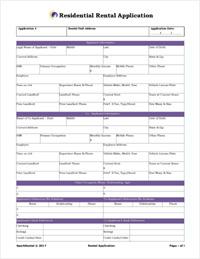The Big Picture on Developing Better Money Habits:
-
- Strategies like house hacking, moving to a lower-cost area, and getting rid of a car can significantly reduce major expenses, accelerating wealth building. These methods require substantial lifestyle adjustments but offer the highest potential for saving large amounts of money.
- Small behavior changes such as cutting out sodas, making coffee at home, quitting smoking, and eating less meat can improve both financial and physical health. These changes are relatively easy to implement and can cumulatively result in significant savings over time.
-
Consistently tracking expenses and savings helps maintain financial discipline and identify areas for improvement. Partnering with a “money mate” for mutual accountability and regularly reviewing financial goals and progress can enhance motivation and ensure adherence to saving strategies.
Disclaimer
The information provided on this website is for general informational purposes only and should not be construed as legal, financial, or investment advice.
Always consult a licensed real estate consultant and/or financial advisor about your investment decisions.
Real estate investing involves risks; past performance does not indicate future results. We make no representations or warranties about the accuracy or reliability of the information provided.
Our articles may have affiliate links. If you click on an affiliate link, the affiliate may compensate our website at no cost to you. You can view our Privacy Policy here for more information.

Roughly a third of Americans say they’re living paycheck to paycheck, according to a recent Bankrate survey.
No matter your age, net worth, gender, ethnicity, hair color, or favorite movie, how fast you build wealth depends on one crucial variable: the gap between what you earn and what you spend.
The higher your savings rate, the faster you will build wealth. You could earn a million dollars a year, but if you spend a million and one dollars, you end the year poorer than you started it.
Developing better money habits offer huge monthly savings but require significant life changes. Others yield small results but require only small behavior tweaks.
As you explore creative ways to save money, set ambitious goals, such as living on half your income. Don’t shy away from the big ideas, such as house hacking to score free housing. But if you want to start smaller, skip to the “Easy” section.
Even if you only implement one money-saving tip, I will have accomplished my mission. You will save more money to build wealth and passive income faster.
You’re welcome.
Better Money Habits: Huge Savings, Huge Life Changes
Everyone wants massive results with minimal effort.
On the one hand, the ideas below do have a huge impact. They require relatively few changes—but major ones.
Start here because these ways to save money offer the greatest opportunity to shift your savings into overdrive.
1. House Hacking
For most people, housing marks their largest expense, and developing better money habits start there. It is the largest way to save money, by reducing or eliminating it.
In traditional multi-family house hacking, you buy a multi-unit property, move into one of the units, and rent out the other(s). Your renters essentially pay your mortgage for you.
You do not need to move into a multi-family property to house hack. Many other ways to house hack do not require purchasing a new property.
Never use the guest room in your house or apartment? Create an Airbnb account and have others pay to take up your unused space! You can also rent out storage space, host a foreign exchange student, rent out bedrooms, or find other creative ways to save money on your rent or mortgage payment.
Common Types Of House Hacking
Here are other common house hacking methods:
| House Hacking Method | Description |
|---|---|
| Multi-Family Property | Purchase a multi-unit property, live in one unit, and rent out the others. Renters’ payments cover the mortgage. |
| Rent Out Rooms | Rent out spare bedrooms in your house to tenants or through short-term rental platforms like Airbnb. |
| Basement or Garage Apartment | Convert a basement or garage into a separate rental unit. |
| Accessory Dwelling Unit (ADU) | Build an ADU on your property, such as a tiny house or a detached guest house, and rent it out. |
| Live-In Flip | Buy a fixer-upper, live in it while renovating, then sell for a profit. |
| Host a Foreign Exchange Student | Provide housing for foreign exchange students and receive a stipend. |
| Rent Out Storage Space | Rent out unused storage space in your home or garage to others. |
| House Swap | Swap houses with someone for a short-term stay, allowing you to save on travel accommodation costs. |
| Co-Living Arrangement | Share your home with like-minded individuals who contribute to the rent and utilities. |
| Live-in Property Manager | Manage a property in exchange for reduced or free rent. |
| Event or Film Location | Rent your property as a location for events or film shoots. |
| Rent Out Parking Space | Rent out unused parking spaces to neighbors or commuters. |
| Home Office Rental | Rent out a home office space to remote workers or freelancers. |
| Garden or Farm Space | Rent out space for gardening or small-scale farming, such as community gardens or urban farming plots. |
Most importantly, review the numbers. Are you saving money from house hacking? Use a house hacking calculator to determine exactly how much you would spend, charge, and save.
2. Move for a Lower Cost of Living
Brian Davis, the co-founder of SparkRental, has lived overseas for nearly six years. He enjoys lower housing costs (actually, no housing costs, as he house hacks) and a lower cost of living.
But you don’t have to move quite far from home to enjoy a lower cost of living. Consider that the median home in San Francisco ($1,292,126) costs more than 11.4 times the median home price in Cleveland! (More on the cheapest real estate in the US here.)
Which says nothing about grocery prices, parking fees, restaurant prices, and entertainment costs. Or, for that matter, taxes.
3. Move to a Lower-Tax County, State, or Country
Do you know how much you pay in taxes based on where you live compared to other cities or countries? If you don’t, you should.
The difference between the states with the lowest and highest taxes is nearly 8% of their income. New York residents pay roughly two-and-a-half times the state taxes as their counterparts in Alaska do, as a percentage of their income.
As a quick example of how widely property taxes vary by county, spend 30 seconds playing with this interactive map of property taxes by county:
Would your readers enjoy this interactive map comparing property taxes by county? Click here for the embed code.
Share This Map on Your Site
Taxes greatly affect the amount you could be saving per month. Even if you are not looking to move, take a look at how your state compares to others and the amount you could save by living somewhere new!
4. Get Rid of a Car
Yes, cars can be essential to life, depending on where you live. But if you have more than one car in your household, you may want to consider getting rid of one.
Not only are car payments expensive and promote further debt, but consider the amount you pay on car insurance, maintenance, gas, parking, and all the other incidental costs. Together, these bills can add a significant amount to your monthly spending. According to AAA, the average annual cost of keeping a car in America is more than $12,000.
Transportation is the second largest expense for most Americans. If you live in a city near your workplace and grocery stores, sell your car and stop spending on something that sits on the street most of the time! You’ll find that most ways to develop better money habits start with removing things from your expense list.
(article continues below)
Lifestyle Changes for Greater Wealth (and Health)
Beyond the major life changes typically required to slash your housing or transportation costs above, you can adopt other lifestyle changes to save more money. They still require you to live differently, but that’s the cost of fast building wealth and passive income.
5. Stop Drinking Sodas & Sweetened Beverages
Not only will you feel better physically, but cutting out soft drinks will save you a tremendous amount.
According to the USDA, the average American household spends $2,239 annually on sodas and sweetened drinks. Instead, stick with water or homemade tea and coffee. You can improve your physical and financial health by making this minor change. That’s better money habits and better health.
6. Make Coffee at Home (or Work)
Quit spending $5 every morning to stop at your favorite coffee shop on your way to work. Instead, brew some coffee at home and bring it with you! While $5 never seems like a lot in the moment, especially on a groggy Monday, it can top $1,000 yearly if you buy coffee most days each week.
If you like iced coffee, try freezing your leftover coffee in ice cube trays. Then, each morning, you can plop the ice cubes into your coffee for undiluted iced coffee made to your taste.
7. Quit Smoking
Smoking is expensive. With the average cost of cigarettes at $8.39, a pack-a-day smoker blows $3,062 up in smoke per year on cigarettes alone. If you’re serious about developing better money habits, you could save and invest thousands more dollars each year by quitting.
Cigarettes keep you poorer and less healthy. Do whatever it takes to quit smoking, to live longer simultaneously and actually have the money to enjoy it.
8. Eat Less Meat
By eating a vegan or vegetable-based diet, you could shed your spending and the extra pounds simultaneously. Robyn from A Dime Saved shares the following advice for moms on a budget:
“Have you ever considered going vegan to save money? Beans, rice and other non-animal proteins are much cheaper than meat and chicken and if you do it properly it can be extremely healthy as well!”
As Robyn points out, adjusting your lifestyle to eat less meat contributes to more than just physical health. Plant-based ingredients can save you money as well! And, for that matter, reduce your environmental footprint.
You don’t have to eliminate meat entirely. Try sticking with plant-based dinners on a couple of nights each week (think “Meatless Monday”).
9. Learn to Cook
No more DoorDash or Uber Eats! Learning to cook will not only churn up your creative side, promote healthier eating, and save you money.
And the better you get at it, the more fun you have with it. I can now cook nearly all my favorite meals from scratch, and they taste better than even upscale restaurant versions.
10. Pack Your Lunch Every Day
Food is the third largest expense for the average American, which makes sense; we need food to live. However, the way most Americans spend on food ends up costing them much more than they originally budgeted. Not only will you most likely eat healthier, but by making your own lunches every day, you could end up saving $100 a week!
11. Pay Off Your Credit Card in Full Each Month
One of the best ways to develop better money habits is not leaving unpaid balances on your credit card.
Not only will paying off your credit card in full each month keep you accountable for not overspending, but you won’t get penalized either. Interest fees can creep up and make paying off your debt even harder.
If you have unsecured debts, such as credit card balances, personal loans, or student loans, try the debt snowball method.
12. Track Your Spending & Savings
Keep a financial log of your previous month’s savings rate, investable net worth, and FIRE ratio. (The FIRE ratio refers to the percentage of your living expenses that you can cover with passive income from investments.) What gets measured gets done! It also keeps your financial progress in mind—plus it makes you feel better, seeing your money habits yielding tangible results.
In addition, track your spending each month. Not only will you keep yourself accountable, but you’ll also get an accurate gauge of where you spend your money. By knowing what you spend money on, you automatically know where to cut back.
At the end of the month, review your credit card purchases. If you see five trips to the mall, you are spending a lot on clothing and accessories.
Allie Fleder, the COO of SimplyWise, a retirement savings organization, shares firsthand how saving receipts and holding yourself accountable for your spending may significantly increase your monthly passive income.
“Start saving receipts — paper and digital, and reconcile them with your accounts. While keeping a budget can be hard, getting into this kind of a practice forces you to be more aware of your spending. It’s also a great way to find when you have been overcharged or double-charged (whether on groceries or a medical bill), which happens more often than we think.”
13. Partner with a Money Mate
Find a buddy who wants to save money too! Once a week, review each other’s spending and keep one another accountable.
At the beginning of each month, share your savings rate from the previous month, your net worth, and your FIRE ratio. Being accountable to someone else keeps you motivated!
And no, you don’t need to go out to dinner or drinks to do it. Do it by phone or video chat if that’s easiest, or share a homemade meal or a backyard beer around the fire pit.
(article continues below)
Fun and/or Easy Ways to Save
Not every money-saving idea requires a major lifestyle change. Try the following if you need a quick or easy way to get started.
14. Grow Your Own Food
Amber Kong, lead content strategist at CreditDonkey, offers her own food-based advice:
“One unique way to keep some money in your pocket during difficult times is growing your own food.
If you happen to have a large patio at your disposal, don’t waste it on ornamental plants like flowers and bushes. You can grow a wide variety of herbs, fruits, and veggies in your backyard that are super easy to take care of. After a few months of producing some of your own food, you’ll see the difference in the supermarket’s bill.
Even if you don’t have a backyard, you could grow your own food indoors with some devices you can find at a very affordable price. It won’t only save you money but also provide you with fresh food every time you need it.”
As a side bonus, gardening and growing food become hobbies—a money-saving hobby that could replace an expensive hobby, helping you to save more money in several ways!
15. Plan Your Meals
We all know not to shop for groceries when you’re hungry. Not only do you spend more, but you generally purchase foods you wouldn’t normally. Planning out your week’s meals and only going to the store once per week could save you a lot of unnecessary spending.
In that same mentality, eat your leftovers! Ben Renolds, the CEO of Sure Dividend, explains the power of leftovers:
“Eating your leftovers for lunch and dinner can save you money and prevent you from wasting the food you bought and made. However, some people might not like the taste in the microwave. Instead, you can reheat leftovers in the oven and spice it up a little.
Whether you’re adding a bit more mozzarella cheese to your noodles or a few spices to your meal, you can recreate the flavor and save more money on remaking a meal for lunch or dinner the next night.”
Making small life changes like this could save you over $100/month. You could also invest an extra $100 in passive income and greater wealth.
16. Know What to Buy Used vs. New
Better money habits start with knowing what to get new vs. what to get used. You can’t buy food used, but you can buy plenty of other things used that plummet in resale value but don’t lose their functional or aesthetic value.
As the old saying goes, one man’s trash is another man’s treasure. For example, one of the largest moving expenses is furniture. Instead of going into a furniture store and purchasing everything new, go onto Craigslist or Facebook Marketplace and see what is being sold by others near you.
The same goes for electronics such as TVs and smartphones, silver and crystal, home décor, bicycles, home gym equipment, clothes, baby paraphernalia, and more. Often, you can find items in near-new condition selling for a fifth of their retail price!
17. Ditch Your Gym Membership If You Work Out Less than Once a Week
Over half of gym members show up less than once a week, yet the average membership costs roughly $840 annually.
If you use your gym membership at least once a week (ideally more), then by all means, keep it. But too many people keep their membership to avoid admitting defeat to themselves by canceling it.
Gym membership is a privilege, not a right. You have to earn it by working out before, not after, opening a membership. Start with at-home or outdoor exercises, establish the habit of working out simultaneously every day, and save yourself $840 annually.
18. Cut the Cord (Ditch Cable TV and Landline Phone)
Do you really need a landline?
Didn’t think so.
You probably don’t need cable TV either. Most of today’s best new shows originate from streaming services such as Netflix, Amazon Prime, Apple TV, and HBO.
You don’t even need cable for Sunday football. If you want more football options than you can get over HD local broadcasts, buy NFL GamePass.
19. DIY Projects
You could spend an arm and a leg on contractors to update your home or rental properties. Or you could learn how to make repairs and home improvements yourself.
For that matter, you can even DIY your furniture or home decor personalizations. See a mirror at Pottery Barn that you loved and can’t stop thinking about? Instead of spending the $200 retail price, learn how to recreate the effect yourself.
Nowadays, you can really learn anything on YouTube! By doing home projects yourself, you can save money while also learning new things.
20. Become a Social Media Influencer
Think about the brands you spend the most money on. Use your brand (yourself) to reach out to these brands and get paid to promote them!
Not only do you save money on products you would have had to buy otherwise, but you also create relationships with companies that could boost your brand.
While not for everyone, if you are active on social media and enjoy engaging with brands, this could be a fun and creative way to save money.
Final Thoughts On The Best Better Money Habits
There are many ways to develop better money habits, and you won’t identify with every savings trick above. However, if you can take away just one way to save each month, you will be astounded by how much you will save per year.
Humor yourself. Take one of these creative ways to save money and try it for three months. At the end of those three months, measure your progress, and then try another idea for how to save more money.
Before you know it, you’ll have a higher net worth, more passive income, and a fast track to FIRE.♦
What are your creative tips for how to save money? How do you save more money each month?





























The more creative you get in how to save more money, the less “sacrificing” you need to do. Simple and great article!
Absolutely Greg! I love creative ways to save money each month for that very reason 🙂
Eat less meat! It seems silly but it really makes a HUGE difference AND helps to save our planet.
True story J. 🙂
As a carnivore I’ll never cut it out entirely, but I’m trying to go from 7 days a week to 5 or 6.
Just buy what you Need, not what you Want. It helps a lot to save money.
Make a list of all your needs for the week and save the rest in your bank account.
If one follows these tips and tricks, surely one could save alot.
This is absolutely fantastic way to be wealthy and healthy. Cut the labor cost and do the cooking on your own. I saved a lot from cutting my expenses by efficiently doing half of it on my own, whenever possible,. Eating what our body needs not what our mouth wants is not only a lifesaver but also pennysaver. I have too many to mention but I wanted to end it by saying I enjoyed reading your articles!
Thanks Miss Jacky!